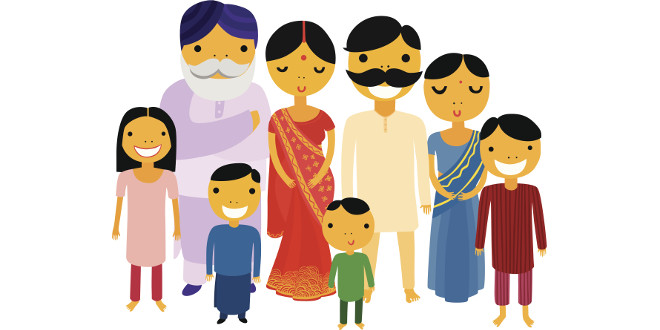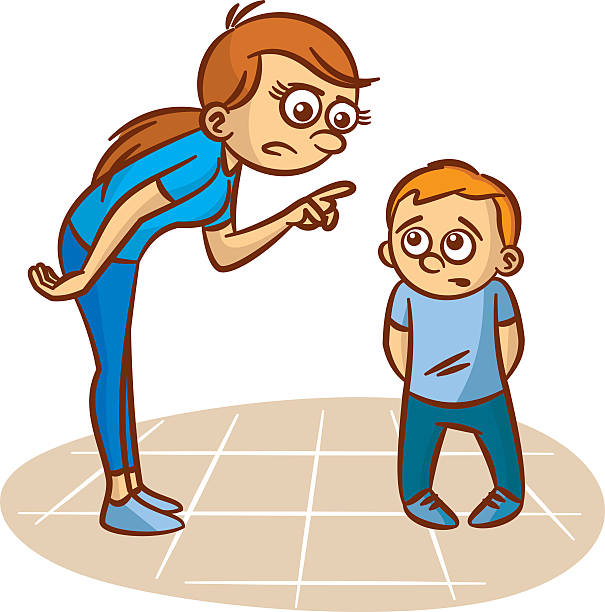
Which Parenting Style Is Most Effective For Indian Kids?
They are not wrong when they say ‘innocent child’. But parents often do not understand the depth of their innocence.
A child’s development is entirely dependent on what he sees in his surroundings and how his peers behave with him and with others around him.
Which is why we often choose the best school for our kids to give them the right education and learning at the early stage of his life.
But the responsibility of parents for their child’s advancement doesn’t end there. It has got to do a lot more with the kind of parenting style we choose and follow.
Did you know there are majorly two kinds of parenting style followed across the world? And of that, in India, we have a different approach depending on our mood.
But what is the parenting style that is most suitable for your child? To figure that out, you need to observe and understand these styles at a very close range.
Usually, there are two kinds of parenting styles most commonly used across the world. In India, however the approach is different which we will discuss next.

Which parenting style is followed in India?
When it comes to Indians, there isn’t a specific style that you can associate with their parenting. In some circumstances, they will feel they are following authoritarian, while in some they will feel they are more authoritative.
India is a land of different religions, cultural practices. Hence, the difference can be clearly seen in the parenting style as well.
Although culture is the key ingredient, the economic situation and standard of living also have an impact on parenting.
In order to understand the perspective of Indian parents, you need to understand what is most valuable for them when it comes to parenting. Unlike most parents who believe in luxuries, Indian parents believe that values, principles, and customs are more important. Additionally, they also value other factors-
1. Use of cultural values and customs
India mostly has the concept of joint families which builds a sense of respect for other people, their values, and customs in the child. This naturally allows the child to be surrounded by people most of the time and it leads in building up the social values.
Even in the current scenario of diminishing rate of joint families, people visit their relatives and friends often which fills the gap for nuclear families.
2. Prepare for the future
Indians believe in helping their children to achieve the maximum. You will see an Indian parent allowing the child to watch TV and have fun. But at the same time, the parent will put an effort and try to keep himself up to date with what’s going on study wise in the kid’s school.
You will never find a western parent bothering about what’s being taught in school like an Indian parent. This creates a huge difference in terms of communicating with the child.
This is because an Indian parent believes that only academics are going to help the child in future. Which is why they want their kids to focus on doing good in school and at the same time keeping themselves on the same page as their kids.
They strongly believe that their child should be part of the family and community altogether.
3. A sense of responsibility
Indians make the kids feel that it is of prime importance that every decision he makes and every action he takes should be correct as it has consequences for the entire family and community. For their every decision, they have to take permission from their parents.
This makes the child responsible towards the family and most importantly, the community. In the longer run, a child does not take any drastic step that may harm him or the society altogether.
4. Freedom to an extent
The children in India receive certain amount of freedom. It means that if the child is allowed to use social media, it will be for a specific time, but that shouldn’t affect the studies.
This creates a sense of contentment and the child understands the extent to which he should let social media affect his life. Definitely, this helps the child in the longer run.
5. Strictness when it is required
Right from cleaning the room to doing small household works, Indian parents make sure that their children learn how to manage things. They impose strictness when required and push their children to do their work on their own.
This helps the child to be self-sustained and become active. It also builds a sense of ‘being independent’ within the child.
6.Teaching Religious Values
With Hinduism as the most prominent form of religion in the Indian culture, most Indian parents impart the importance of prayer and worship to their children.
There is a strong emphasis on respect for elders in the Indian culture as well. This allows the child to learn about rituals and understand the basic values related to his religion.
7. A different approach to growth and health-related issues
In rural locales of India, parents utilize health and growth related techniques quite different than in modern Indian culture. In villages, it is a common expectation for children as young as 8 or 9 years old to help in household work every day to contribute to family life.
Moreover, they have a different approach for health facilities too. For example, herbal remedies are generally used more often than medicines. As a result, there is a significantly lower amount of childhood vaccinations given in rural areas.
8. Punishments as per the mistake
Another trait of an Indian parent is not to use physical violence until its necessary. Unlike the western parents who do not believe in physical punishments, Indians believe that the kids need to realize their mistakes in such a way that he remembers it for a lifetime.
For example, if a kid steals something, an Indian parent punishes him physically but at the same time also explains the reason why he deserved it. This makes the children aware of what’s considered wrong in the society and they tend to remain disciplined.
But there are few things that lack in Indian parenting that brings us to the question of, ‘what needs to be changed?’
Even though, Indians do a great job of raising their kids with a sense of community, togetherness, and customs; they lack in offering what is best for their child. There are few places where they fall back in being the best parents.
1. The unknowing restriction that they place on the child
In most of the Indian households, parents decide the future of a child. This makes the child less confident and creative in terms of his personal choices.
Right from the beginning, the parents keep filling the child’s head with the dream that they see for their child. It cuts off any creative idea that the child may have about his future and it ends up killing a dream that could take shape. This works adversely in most of the cases and even if the child follows his parent’s dreams, he isn’t happy after achieving it in the end.
2. Academics is not the only place to show excellence
Every child doesn’t dream of becoming a doctor, engineer, or an IAS. If Indian parents understand and respect the choices of their child, it will do wonders for sure.
If the child wants to pursue his passion and for a change be a painter or a DJ, you should respect it and support the child instead of mocking him. No parent puts emphasis on extra-curricular activities or any support to the children for sports.
You should understand that there are various places that your child can excel and all you need to do is give him a fair chance and then decide.
3. Being conservative is not always good
It might be a good thing to be a little bit conservative but, in the long run, it’s not. You will never find an Indian parent discussing sensitive topics like – sex, drinking, smoking etc. with the children. You might debate that this is good and it helps maintain the level of respect. But you are wrong.
If a child is not guided in these topics by parents, they take out information from bad sources and end up misunderstanding the whole concept. They might even end up going on the wrong path.
Its the need to remove the barriers and be logical. As a parent, you should freely talk about sensitive topics. You should guide your kids on the right path instead of leaving them confused and let them figure out on their own.
4. No freedom of choice
From the kind of clothes kids wear to the stream they choose in school, everything is decided by the parents. And this does not simply end here. The selection of the college, course, city of work and even the spouse hugely depends on the parents’ decisions, if not entirely.
They feel that the child is not mature enough to think what is good and what is bad for him. So, they take the matters into their hand and decide what’s best for their children.
5. Over-protection can lead to a low self-esteem in the children
Indian parents always are overprotective when it comes to their children. Indian kids basically depend on parents until they themselves become a parent. This is clearly not a progressive way of bringing up a child.
A child must be independent enough to make his life decisions on his own and be ready to face the consequences. All parents ultimately want to protect their kids but being overprotective can lead to low self-confidence in the child.
Which parenting style should you follow?
As a parent, now you are aware of both the authoritarian and authoritative parenting styles. You know what are the major differences between both the styles, but it’s not the case that you should choose one over the other. And it also doesn’t mean that you should blindly follow the traits of an Indian parent.
In my opinion, each kid is different and so as a parent you should prepare a parenting style which suits your kid the best.
You need to keep up with your children and make changes according to the situation and behavior of your child. But always keep in mind that violence and physical punishments can only do more bad than good.
It’s all about making adjustments as your child grows. Afterall, time flies and before you know it, your kids are teenagers. Moreover, you should understand that it’s not the medieval times anymore and you are adult enough to educate your own child about sensitive issues.
Additionally, you should never stop working on the communication between you and your kids. Keep a very clear and calm communication with your kids.
This will not only create respect but also you will never see the need for physical punishments to parent your children.
In conclusion, all I can say is that every parent may prioritize different goals for their children, but it is important to remember that there is a need to put the academic, social, emotional, and cultural needs of children first for the best results.



















